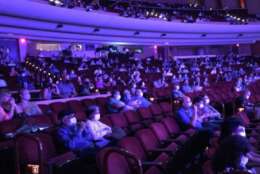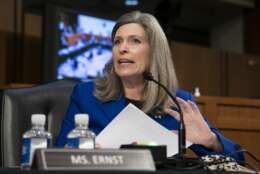Management
-
The new White House directive, the first government-wide Section 508 guidance in more than a decade, looks to hold agencies more accountable for meeting digital accessibility requirements.
December 21, 2023 -
The Government Accountability Office, the chief oversight arm of Congress , has a new chief scientist. He joins the agency after having been chief scientist at Noblis, a nonprofit research and consulting institute with many federal clients.
December 21, 2023 -
State Department is celebrating members of the Foreign Service community for their volunteer work overseas.
December 20, 2023 -
The Government Accountability Office recently upheld the protest of a contract award from the Defense Intelligence Agency. DIA was hiring a small business to conduct counterintelligence training. It used a slightly unconventional approach to evaluating bidders.
December 20, 2023 -
The last thing the Veterans Health Administration (VHA) needs is new employees who have a substance use disorder or or felons with access to VA pharmacies. But the agency lacks a consistent procedure for finding out about such people from the Drug Enforcement Administration. According to the Government Accountability Office (GAO), the VHA, in fact, hired thousands of people who might have drug-related convictions.
December 20, 2023 -
Theaters, opera halls and concert venues were all hit hard by the pandemic. People didn't want to gather in close quarters. To get a gauge on how and where people might be participating in the arts again, the National Endowment for the Arts (NEA) focused on that topic in its most recent five-year survey. For more on the methodology and how the results guide NEA activities, the Federal Drive with Tom Temin talked with the agency's director of research and analysis, Sunil Iyengar.
December 20, 2023 -
The IG substantiated several allegations of misconduct by former DCSA Director William Lietzau, including sexual harassment and misusing his position to provide personal favors.
December 19, 2023 -
Federal News Network is compiling a list of agencies that have so far made return-to-office announcements for their employees. The list will be regularly refreshed as we learn more.
December 19, 2023 -
The State Department processed over 24 million passport books and cards in fiscal 2023 — a new record. And it's back to processing passport applications within 6-8 weeks for routine service.
December 18, 2023 -
They somehow cobbled together two consecutive continuing resolutions. Now members of Congress aren't sure what will happen when the current one expires. At least one Democrat in leadership predicts a shutdown next month.
December 18, 2023 -
A FEMA spokesperson told Federal News Network the new headquarters will include a larger space for FEMA’s National Response Coordination Center, and that the new space “fits the unique needs of emergency management.”
December 15, 2023 -
Multiple sources tell Federal News Network the Office of Management and Budget told agencies to target specific job classifications like cyber or data scientists or certain grade levels for increased salaries.
December 15, 2023 -
The House has passed a defense policy bill that authorizes the biggest pay raise for troops in more than two decades. Supporters overcame objections from some conservatives concerned it didn’t do enough on cultural issues, such as restricting the Pentagon’s diversity initiatives and gender-affirming health care for transgender service members. The Senate had already overwhelmingly passed the bill on Wednesday, so now it goes to President Joe Biden’s desk to be signed into law. One of the most divisive aspects of the bill is a short-term extension of a surveillance program aimed at preventing terrorism and catching spies. Opponents of the extension wanted changes designed to boost privacy protections for Americans.
December 14, 2023 -
The U.S. Agency for International Development (USAID) is known for operating around the globe. Now it has a geospatial strategy it hopes will improve the decision-making and, ultimately, the effectiveness of its aid programs. For details, the Federal Drive with Tom Temin spoke with Carrie, Stokes, USAID's Chief Geographer.
December 14, 2023 -
In today's Federal Newscast: The Office of Personnel Management serves up a few onboarding reminders. The 2024 National Defense Authorization Act clears its latest hurdle. And Sen. Joni Ernst wants feds fired who get convicted of a sexual assault.
December 14, 2023















